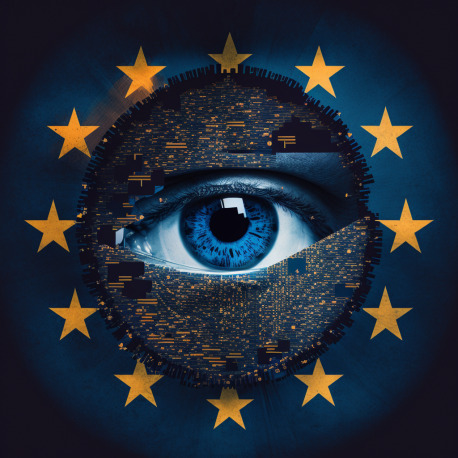#EuropeanDataProtectionBoard
Text

European Privacy Watchdogs Assemble: A United AI Task Force for Privacy Rules
In a significant move towards addressing AI privacy concerns, the European Data Protection Board (EDPB) has recently announced the formation of a task force on ChatGPT. This development marks a potentially important first step toward creating a unified policy for implementing artificial intelligence privacy rules.
Following Italy's decision last month to impose restrictions on ChatGPT, Germany and Spain are also contemplating similar measures. ChatGPT has witnessed explosive growth, with more than 100 million monthly active users. This rapid expansion has raised concerns about safety, privacy, and potential job threats associated with the technology.
The primary objective of the EDPB is to promote cooperation and facilitate the exchange of information on possible enforcement actions conducted by data protection authorities. Although it will take time, member states are hopeful about aligning their policy positions.
According to sources, the aim is not to punish or create rules specifically targeting OpenAI, the company behind ChatGPT. Instead, the focus is on establishing general, transparent policies that will apply to AI systems as a whole.
The EDPB is an independent body responsible for overseeing data protection rules within the European Union. It comprises national data protection watchdogs from EU member states.
With the formation of this new task force, the stage is set for crucial discussions on privacy rules and the future of AI. As Europe takes the lead in shaping AI policies, it's essential to stay informed about further developments in this area. Please keep an eye on our blog for more updates on the EDPB's AI task force and its potential impact on the world of artificial intelligence.
European regulators are increasingly focused on ensuring that AI is developed and deployed in an ethical and responsible manner. One way that regulators could penalize AI is through the imposition of fines or other penalties for organizations that violate ethical standards or fail to comply with regulatory requirements. For example, under the General Data Protection Regulation (GDPR), organizations can face fines of up to 4% of their global annual revenue for violations related to data privacy and security.
Similarly, the European Commission has proposed new regulations for AI that could include fines for non-compliance. Another potential penalty for AI could be the revocation of licenses or certifications, preventing organizations from using certain types of AI or marketing their products as AI-based. Ultimately, the goal of these penalties is to ensure that AI is developed and used in a responsible and ethical manner, protecting the rights and interests of individuals and society as a whole.
About Mark Matos
Mark Matos Blog
#EuropeanDataProtectionBoard#EDPB#AIprivacy#ChatGPT#DataProtection#ArtificialIntelligence#PrivacyRules#TaskForce#OpenAI#AIregulation#machine learning#AI
1 note
·
View note